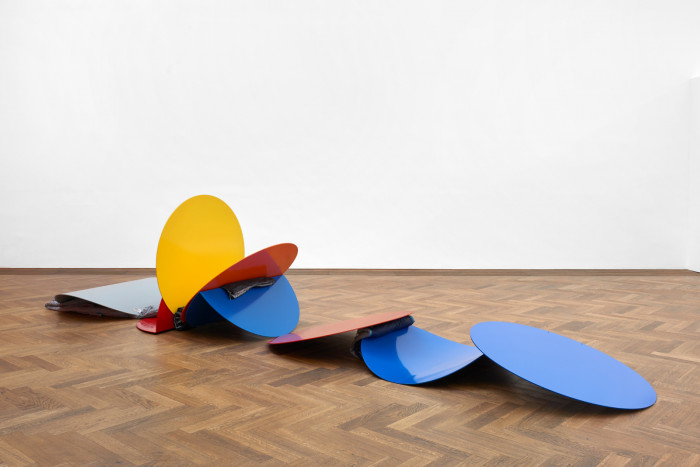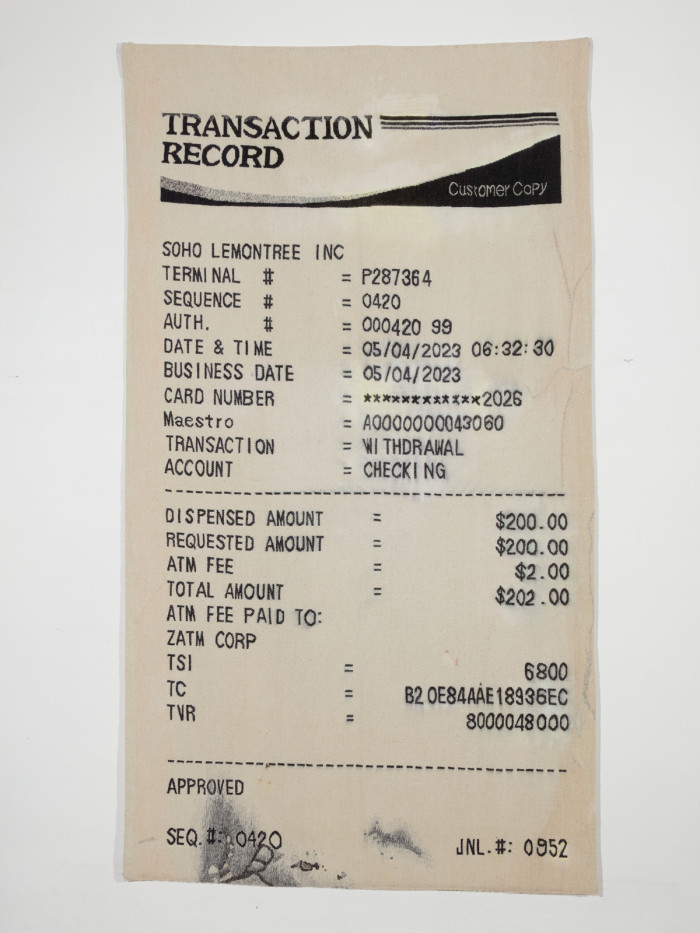Gabriel Kuri
One of the most prominent sculptors of his generation, Gabriel Kuri studied Visual Arts at Escuela Nacional de Artes Plásticas (UNAM) in his hometown of Mexico City. Between 1987–91 he was part of Taller de los viernes, an informal workshop established by Gabriel Orozco, where younger artists, including Damián Ortega, Abraham Cruzvillegas and Dr. Lakra met to study, exchange ideas and experiment. After graduating, Kuri moved to Europe in 1993 and settled in the UK where he completed his Master of Fine Arts at Goldsmiths University in London in 1995. Since then, he has exhibited frequently in institutions across the globe.
Kuri’s practice is marked by preoccupation with systems and categorizations, as well as materials and the relationships between them. Playing with the principles of minimalism and the history of consumption, the artist often integrates elements of everyday life (plastic bags, cans, receipts, tickets) into his collages and sculptures made of cement, brushed steel or insulation rolls. For Kuri, every object is imbued with information and his unexpected combinations generate new readings of visual culture and economic mechanisms embedded in it. His sculptures often examine "juxtoppositions": they mix matt and shiny textures, soft an hard surfaces, precarious and durable materials. In doing so, they challenge the definition of sculpture, which is further subversed by the frequent use of motion and balance as construction principles for his works.
Kuri was part of the Venice Biennale in 2003 and 2011 and Berlin Biennale in 2008. Recent solo exhibitions include: Aranya Art Center, Qinhuangdao, China; Jumex Museum, Mexico City, Mexico (both 2023); The Douglas Hyde Gallery, Dublin (2020) and WIELS – Contemporary Art Centre, Brussels (2019–20). Despite having been based in Brussels for over two decades, Kuri’s work is rarely exhibited in Belgium. Only two works of the artist are represented in a Belgian public collection: Flat Hole (2012) in the Mu.ZEE (Oostende) collection and Untitled (Chartered Missing Data) (2019) in the Collectie Vlaamse Gemeenschap.

